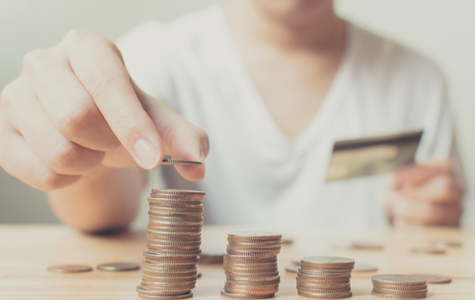
Buying your first property together is a time to treasure, especially if you’ve been saving for your deposit for a long time. It’s an opportunity to find and create a home, making it your own.
From your mortgage and deposit, to paying bills and the paperwork involved with buying a house, here we explain the financial aspects of buying a house and moving in together.
The perfect property
When it comes to finding your new home, it can be helpful to sit down and discuss what you each want from the start. That way you can disregard certain properties from your search straightaway, saving you valuable time.
Compromise might be required, but both of you need to be happy that the property you do choose is the right one.

Your mortgage and deposit
Buying a home with someone is a big commitment, not only emotionally, but financially too. If you’re going to be getting a mortgage together, you’ll have monthly repayments to make. Failing to do this can result in your home being repossessed by your mortgage provider. With any mortgage, you’ll need a deposit of at least 5% of the purchase price. You may choose to save towards this separately, or together. Read our guide for tips on saving towards your deposit.
If you’re contributing the majority of the deposit, you might want this in writing. If you do decide to go your separate ways after the purchase, you’ll receive this money back. If your parents are helping you financially, they too may require this.


Paying your bills
Before getting a mortgage, you need a conversation to determine what you expect of the other person. Will you be splitting the mortgage and household bills 50/50, or will the split be different depending on salaries? Will all your money be pooled into one joint bank account? Will you each keep your separate bank accounts and split the bills? Or will you pay into a joint account for bills? With any joint account, you’ll both be responsible for any overdraft and debts.
Talking about money shouldn’t take the shine off buying your property together, but it could reduce your chances of having arguments in the future. Will you have a contingency fund you can use if you’re a bit short? Will there be a spending limit, so any big purchases must be agreed first? These are all questions to mull over.

You’ll be financially linked
Sharing any financial product with someone, whether that’s a mortgage, loan or utility bill means that you’re financially linked on your credit history. If your partner has struggled with debt in the past or managed their money irresponsibly, your credit rating can suffer. On the other hand, if they’ve been great at making payments and have a good credit history, then yours might get a boost. Your mortgage will need to be paid every month. You’re both responsible for making this happen. If for whatever reason, your partner decides not to contribute, you would have to cover the shortfall.
When it comes to buying a property with someone else, you need to consider all the eventualities and you both need to be actively involved in your finances going forward.
The government’s guide on joint property ownership is a good place to start for advice that will help you make the best decision for your situation.

This guide to saving for a mortgage was produced in collaboration with L&C, the UK’s leading fee-free mortgage experts.



